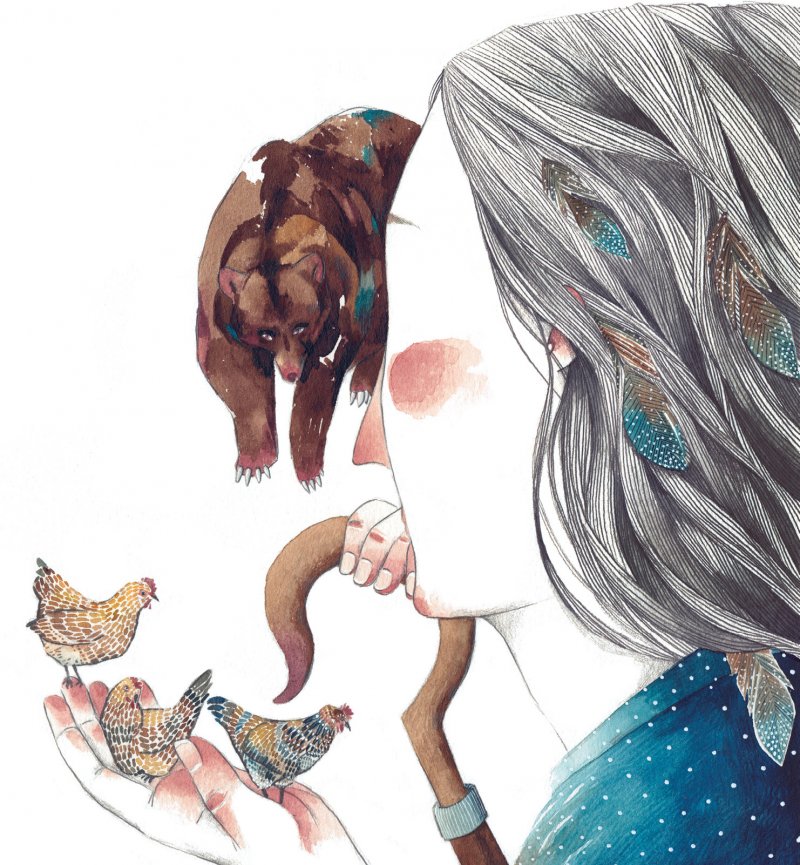One Appalachian Woman’s Misadventures with Backyard Chickens
One Appalachian Woman’s Misadventures with Backyard Chickens: Lessons on heritage and homesteading
When people ask about my heritage, I answer “mountain-born.”
My grandmother was born with red clay under her nails, her black hair and olive skin soaking up the sun until she was earthy. All the women in my East Tennessee family were sturdy, a product of their land. My lineage folds into that region, where it disappears into backyard garden plots and small farms. My childhood was one of fat tomatoes and purple-fleshed muscadines in brightly colored mason jars lining the shelves of the pantry.
Grandmother had an instinct for predators. She could smell a raccoon digging in her garbage or hear a slug threatening her seedlings. She was self-sufficient, mastering the land. I romanticized her as an elderly Laura Ingalls Wilder in Little House on the Prairie … if Wilder had dipped snuff.
When I moved back to the eastern mountains from Boston, it was a joyful homecoming. My foremother’s words echoed in my head: Self-sufficiency, respect for the land, homestead. The black topsoil yielded to familiar red clay and produced beautiful tomatoes. I grew kale and collards in hanging baskets, my porch an edible version of the Gardens of Babylon.
The first friend I made in Asheville had backyard chickens. Their eggs, with oversized yolks the color of marigolds, were the prize at the end of a visit. As I watched my toddler chase the golden birds around her yard, my obsession with backyard chickens took root.
Chickens represented the final connection to my new homestead. The chickens would create self-sufficiency, providing my family with delicious hormone- and antibiotic-free eggs. Our hens were to be well loved, well fed, and happy. And the word “flock” made me feel like a shepherd.
My husband found plans for a coop while I obsessed over Benjamin Moore paint colors. My chickens were going to live in style! I proudly pasted a “We Still Lay” bumper sticker to my car, the motto of Asheville City Chickens. Founded in 2008, the group encourages greater food sovereignty, connecting locals with resources and information, and their help was invaluable.
On the trip to the post office to claim the day-old chicks, I felt like an expectant mother. My downy chirping babies had arrived! As the birds entered adulthood, my chicks morphed into a pack of molting preteens moping around the house, prompting one friend to say, “Those are the cutest velociraptors I’ve ever seen.” Though when the chicks fully matured, I quickly lost control of my original homestead vision.
We loved the birds with the level of intensity usually reserved for household pets. The Ameraucana, which we named Julieta, was our favorite. She stood on our feet, begging to be held, and the kids nuzzled her feathers. When it rained heavily, we moved the whole flock into the garage; who needs dry cars or garden tools? We cancelled vacations to stay home with them. I once became wedged in the coop trying to coax a stubborn Julieta into her nesting box. Our chickens had free range of the house. “Did a chicken just walk across your living room?” my mother gasped. “It pooed under your piano!”
And then one day, tragedy occurred. We returned from an afternoon hike to find the coop overturned, half-destroyed, our girls missing. We had built a substantial coop, secure from digging predators and soaring overhead hawks. Only the neighborhood bear would have been strong enough to harm my girls. Mama bear visited our yard regularly each fall, three cubs trailing her, winding her way through our backyard garden. Our chicken feed was now the appetizer on mama bear’s neighborhood progressive dinner. My grandmother would have remembered the bear, her instinct for predators buzzing.
We never saw our birds again. We looked for months, combing the woods, listening for chirps from Julieta. The house is quiet now without their chatter. There are no more beautiful feathers littering the bedroom. And I now appreciate that homesteading is not something you capture through reading issues of Firefox. It’s not an inheritance, like hair color. I have my grandmother’s dark skin and her love for the soil and these beautiful mountains that we call home. But the predator instinct of a strong Appalachian woman and the cultivation of a deep Appalachian heritage must be earned through lived experience.
We have a band of wild turkeys that stray through the yard. Often I hear a chirp that sounds like Julieta, just a pitch above the turkeys’ gobbling, and I dream of her roaming with a white headband, Rambo-style, queen of the turkey gang.
